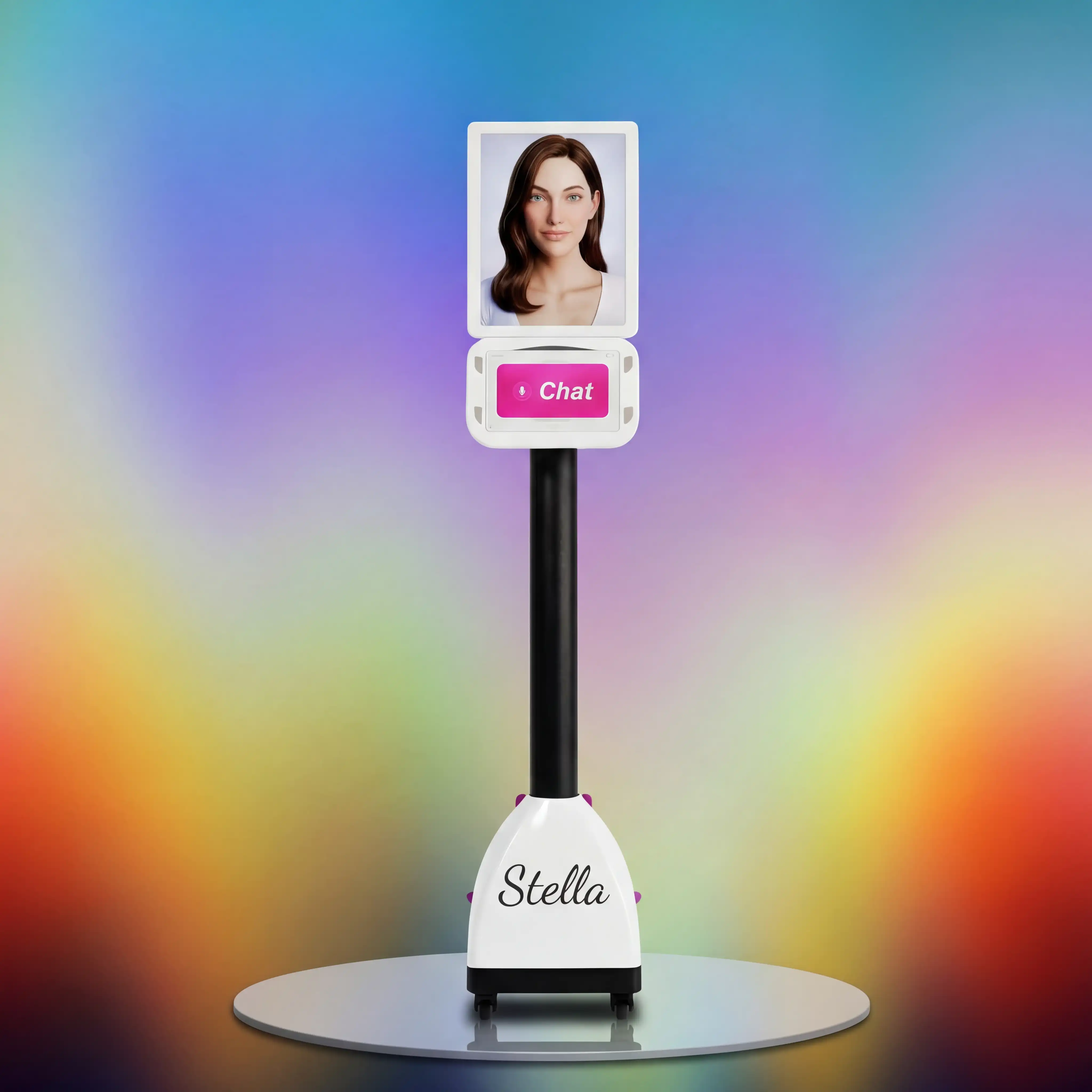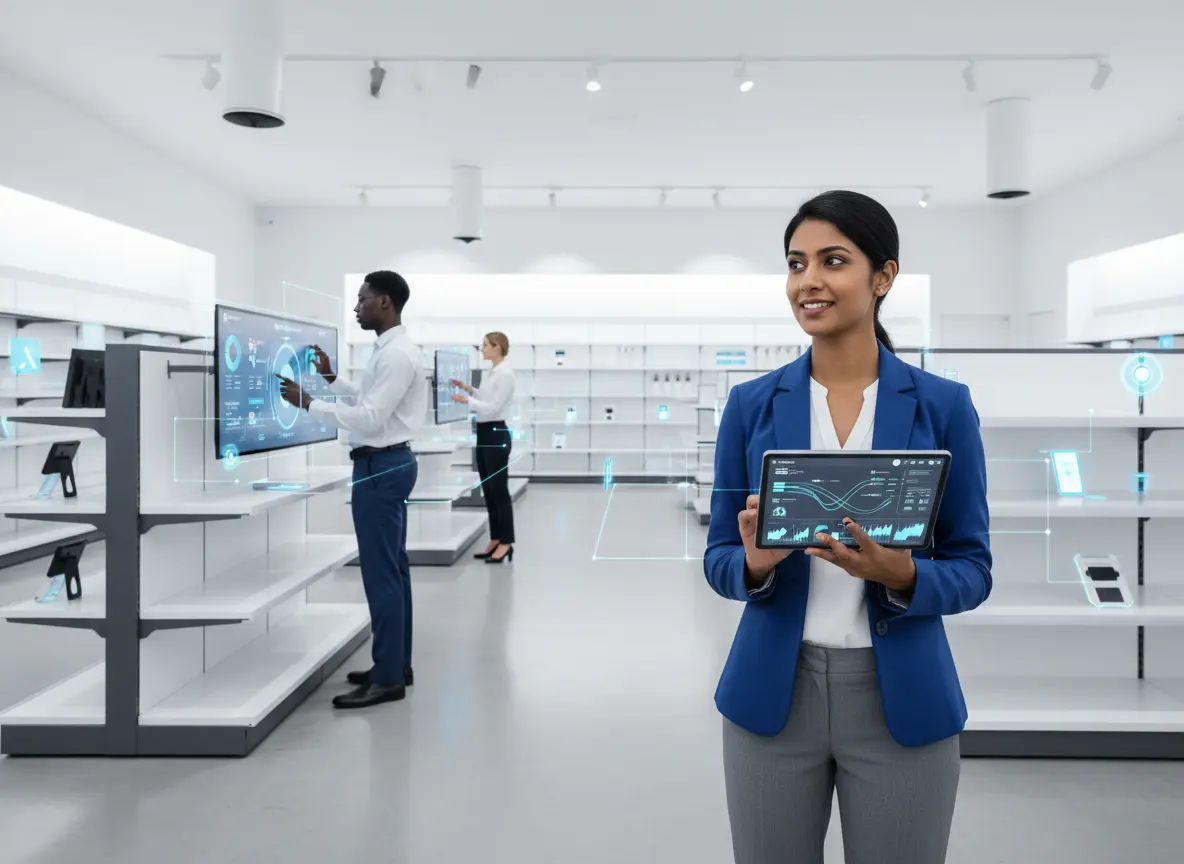Let's Talk About the "Zombie Stare"
You know the one. It’s the look of an employee who has answered “Where are the fitting rooms?” for the 47th time today. It’s the thousand-yard stare of someone who just spent ten minutes explaining a 15% off promotion, only for the customer to ask, “So, is this on sale?” It’s the slow, soul-crushing creep of retail burnout, and it’s costing you a fortune.
The retail industry's turnover rate is notoriously high—hovering around 60% annually, according to some reports. That means for every ten employees you have, six are likely to leave within a year. Think about the cost of recruiting, hiring, and training their replacements. It’s staggering. And let's be honest, the "Great Resignation" didn't exactly skip over the retail sector.
So, how do you keep your best people from joining the exodus? The answer isn't another "We Appreciate You!" pizza party. It's about fundamentally changing the work itself to be more engaging, less draining, and more... well, human. This is your guide to building a team that’s motivated, loyal, and doesn't look like they’re auditioning for a role in a zombie apocalypse.
Arm Your Team with Tools, Not Tedium
No one gets into retail dreaming of becoming a master of repetitive tasks. They join because they love your products, enjoy interacting with people, or have a knack for sales. But burnout happens when the tedious outweighs the terrific. Your first line of defense is to arm your team with the right tools and structures to minimize the drudgery and maximize their impact.
Ditch the "Everyone Does Everything" Chaos
In many small-to-medium-sized stores, the default setting is "all hands on deck." This sounds collaborative, but in reality, it means your best salesperson is stuck unboxing inventory while a new hire fumbles through a complex customer query. This approach guarantees that no one is ever truly great at their job because they’re too busy being mediocre at ten different things.
Instead, create zones of ownership. This doesn’t require rigid, corporate-style job titles. It just means empowering individuals to become the go-to expert in a specific area.
- Let Maria, who has an incredible eye for style, take the lead on visual merchandising for the front window displays.
- Make David, who can talk about your product's technical specs for hours, the official "product genius" for high-consideration items.
- Assign a "promotions captain" each week to ensure all signage is correct and every team member understands the current deals.
This gives your staff a sense of mastery and purpose beyond the register. They’re not just a clerk; they’re the expert.
Invest in Technology That Doesn't Look Like It's From 1998
Are your employees still wrestling with a point-of-sale system that requires a secret handshake and three cryptic keyboard commands to process a simple return? Clunky, outdated technology is a one-way ticket to Frustrationville. It slows down transactions, infuriates customers, and makes your staff feel like they’re working in a museum.
Investing in modern tools isn't a luxury; it's a sanity-saver. A streamlined POS, an inventory management system that actually works, and a simple team communication app (like Slack or even a dedicated WhatsApp group) can remove countless daily headaches. When you give your team tools that make their jobs easier, you're sending a clear message: "Your time and energy are valuable to me."
Train Them Like You Want Them to Stay
Most retail training is a frantic, one-day crash course covering the register, return policy, and how to fold a t-shirt. After that? Good luck. This "sink or swim" approach is a major contributor to burnout. Employees who don't feel confident or competent will quickly become disengaged.
Develop an ongoing training plan. It doesn't have to be complicated. Once a month, hold a 30-minute session on a new product line. Role-play how to handle a difficult customer complaint. Teach them consultative selling techniques so they can move beyond "Can I help you?" This investment shows them they have a future with your company, not just a shift.
Offload the Repetitive, Elevate the Human
Even with great training and clear roles, a huge chunk of an employee's day is consumed by the same few repetitive interactions. This is where you can be truly strategic, offloading the monotonous tasks to technology so your human team can focus on what humans do best: connect, empathize, and sell.
Let a Robot Handle the Welcome Wagon
Think about the energy it takes to greet every single person who walks through the door with genuine enthusiasm, especially on the sixth hour of a long Saturday shift. Add in answering "What time do you close?" and pointing out the new arrivals, and you have a recipe for mental fatigue. These tasks are critical, but they are also profoundly repetitive.
This is precisely where a tool like Stella, the in-store robot assistant, can be a game-changer. Positioned near the entrance, Stella can greet every shopper, enthusiastically promote your weekend specials, answer frequently asked questions, and even recommend complementary products—all without ever losing her chipper demeanor. This frees your human staff from the front-door churn. Instead of being interrupted mid-task to greet a browser, they can dedicate their full attention to the customer who is ready to make a major purchase or who needs detailed, expert advice. It allows your team to shift from being reactive greeters to proactive sales consultants.
Cultivate a Culture That Doesn't Drive People Away
You can have the best tech and the most organized roles, but if your store's culture is toxic, your best employees will still walk. A positive culture isn't about forced fun or mandatory team-building exercises; it's about respect, trust, and genuine appreciation.
Recognition That Isn't a Pizza Party
Let's be blunt: if your only method of showing appreciation is ordering a few greasy pizzas, you're not trying hard enough. While nobody hates free food, it's an impersonal and low-effort gesture that often feels more like a cheap obligation than a heartfelt thank you.
Meaningful recognition is specific and personal.
- Public Praise: During a team huddle, call out an employee by name for a specific achievement. "I want to give a huge shout-out to Sarah for turning a frustrated customer into a happy one yesterday. Her patience was incredible."
- Tangible Rewards: A $25 gift card to their favorite coffee shop is more personal than a slice of pepperoni.
- A Simple Thank You: A handwritten note that says, "Thanks for staying late to help with that stock take. I really appreciate you," can mean more than you think.
Empowerment: Trust Them to Make a Decision
Nothing drains motivation faster than micromanagement. If your employees have to hunt down a manager to get approval for every minor decision—like a $5 discount to fix a customer issue—you’re telling them you don't trust their judgment. This creates bottlenecks and makes them feel like powerless cogs in a machine.
Empower your team by setting clear boundaries and then getting out of the way. Give them the authority to resolve customer complaints up to a certain dollar amount on their own. Ask for their input on which products to feature or how to arrange a display. When people feel trusted and have a sense of autonomy, their ownership of their work skyrockets.
A Quick Reminder About Your New Favorite Co-Worker
As you work on building an amazing human-centric culture, remember that the right technology can be your greatest ally. An AI retail assistant like Stella handles the repetitive, high-volume interactions at the front of the store, ensuring every customer feels welcomed and informed. This frees up your human team to do the high-value work that prevents boredom and fuels their passion for retail.
Your Action Plan for Slaying Burnout
Combating retail burnout isn't a single-fix problem. It’s an ongoing commitment to creating a better work environment. But you don't have to boil the ocean. Start small.
Here’s your takeaway: Investing in your employees' well-being is not just a "nice" thing to do; it is the most effective business strategy for reducing turnover, increasing sales, and building a team that people actually want to be a part of. Don't let the "zombie stare" become the default expression in your store.
Your homework for this week: Pick one idea from this post. Just one. Have a five-minute chat with your longest-serving employee and ask them, "What is the single most repetitive or frustrating task you do every day?" Listen to the answer. The first step to fixing a problem is understanding it from the people on the front lines.





















